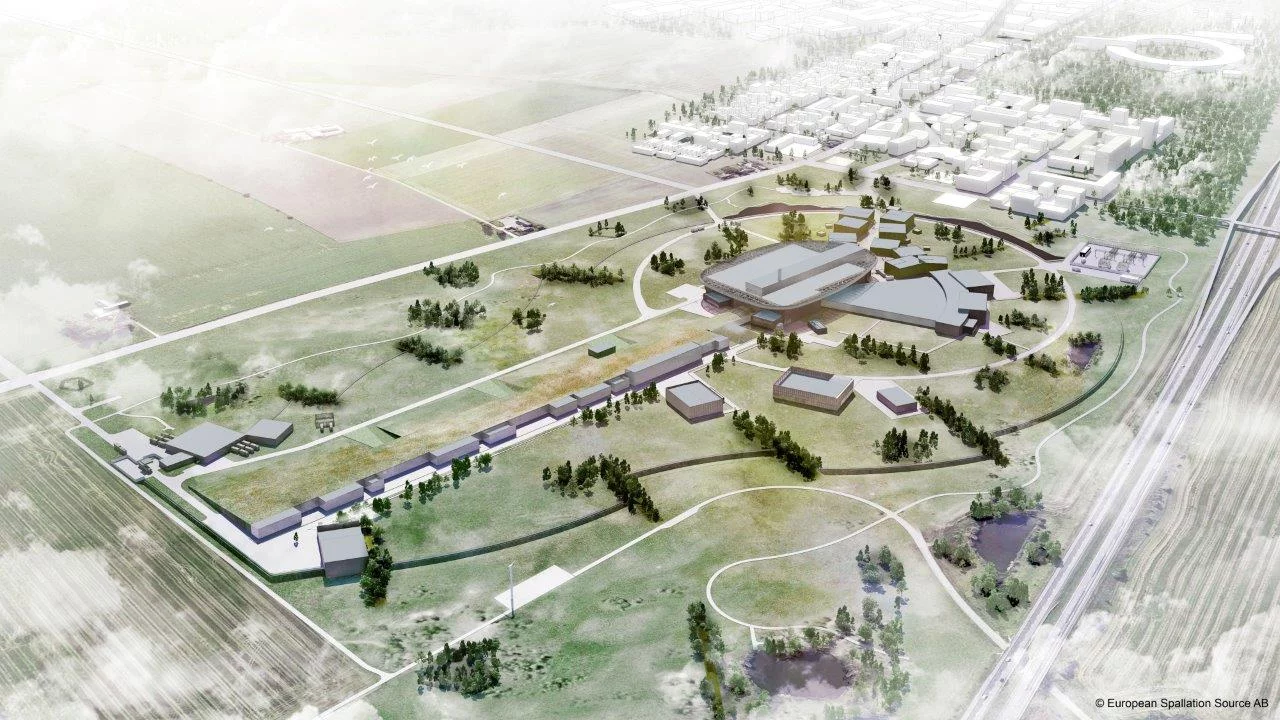Today, several hundred members of the European scientific community gathered at the European Spallation Source (ESS) construction site in Lund, Sweden, for the ESS Foundation Stone Ceremony. The event was held to ‘lay the foundation' both for the new facility, which has recently begun construction, and for a new generation of science in Europe.
ESS is a consortium of European nations, amongst them Switzerland, cooperating in the design and construction of one of Europe's largest active infrastructure projects. Today's event follows the ESS groundbreaking held in early September, when the host countries, Sweden and Denmark, recognised their successful establishment of the pan-European political and economic partnership for ESS.
ESS is a large Research Infrastructure, which has evolved to meet the scientific demand for facilities that are beyond the capability of individual nations or institutions in scope and complexity
, says Jim Yeck, ESS Director General. Scientists and engineers from all over the world are involved in the construction of ESS
.
Following on two decades of increasingly sophisticated technical design work, scientists, engineers, project managers and builders have now embarked on the construction of the most powerful neutron source in the world. ESS will provide the tools for analysis that will enable the next important discoveries in nanotechnology, life sciences, pharmaceuticals, materials engineering and experimental physics. It is understood that ESS, both through the research that will be performed there and the establishment of the facility itself, will serve as an economic driver for all of Europe.
The Paul Scherrer Institute (PSI), which has many years of experience in neutron research, Swiss universities and Swiss industry are responsible for the Swiss contributions towards the development of the facility. Thanks to PSI's credentials in the field of developing the construction and the operation of large research facilities, the institute is an invaluable partner in the project, offering support with a vast range of contributions. On the one hand, these include the development of the target for the new source, bringing its experience of running the Swiss Neutron Spallation Source SINQ to the table and thus helping to ensure a safe, reliable operation of what will be the world's strongest neutron source. On the other hand, PSI is also involved in the development and construction of several of the twenty-two measuring stations and components that conduct the neutron beam to the measuring sites and prepare it for the experiments. The technological developments achieved in PSI's ESS projects are also to be used at the institute and thus stand to benefit Swiss research directly.
First neutrons are expected by 2019 and the first experiments are scheduled to begin in 2023. The cost of ESS is calculated to € 1,843 billion.
Text: European Spallation Source/ Paul Scherrer Institute
About PSI
The Paul Scherrer Institute PSI develops, builds and operates large, complex research facilities and makes them available to the national and international research community. The institute's own key research priorities are in the fields of matter and materials, energy and environment and human health. PSI is committed to the training of future generations. Therefore about one quarter of our staff are post-docs, post-graduates or apprentices. Altogether PSI employs 1900 people, thus being the largest research institute in Switzerland. The annual budget amounts to approximately CHF 350 million.
Additional information
Website of the European Spallation Source: http://www.europeanspallationsource.seContact
Allen Weeks, Head of Communications and External Relations, European Spallation SourceTelephone: +46 46 888 31 52, E-mail: allen.weeks@esss.se
Dr. Kurt Clausen, Head of the Neutrons and Muons Division, Paul Scherrer Institute
Telephone: +41 56 310 3755, E-mail: kurt.clausen@psi.ch

